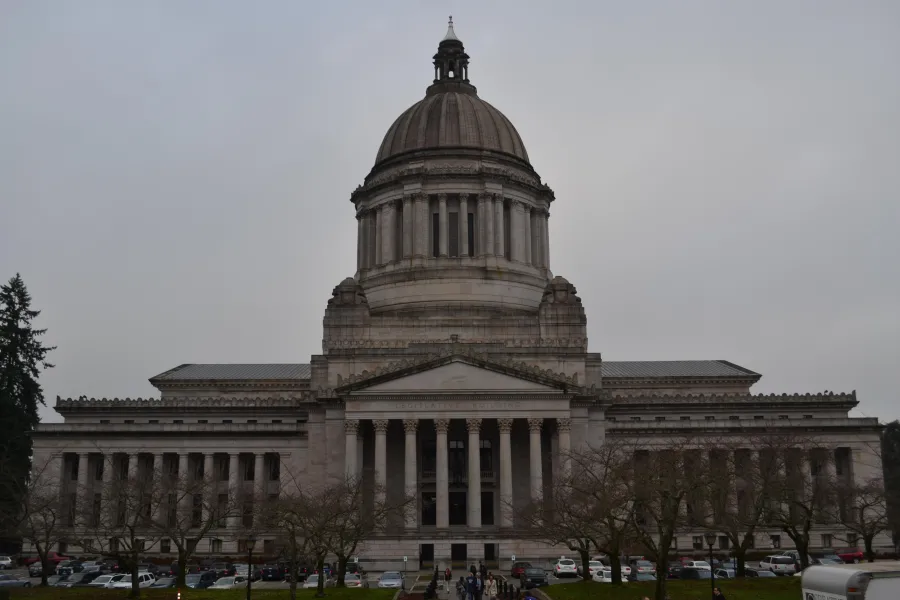Supplemental Budget: We Made Our Voices Heard

On Wednesday, December 18, Governor Jay Inslee released a proposed 2020 supplemental budget, a chance to adjust the 2019-21 budget adopted during the last legislative session.
Though revenue remains a concern, the supplementary budget addresses many of the budget issues raised by public employees.
Governor Inslee proposed no new revenue and a total state spending increase of only 0.6%.
State revenue projections have been making small but steady gains over the past couple of years, but caseloads and enrollments have outpaced this growth. The costs of maintaining services at current levels have put greater burdens on public agencies and public workers.
Below are a few highlights from the Governor’s proposed supplemental budget. The legislature will begin to unveil their versions of the budget in February.
Let's speak up for our jobs, families, and communities. Sign up for our January 11 lobby day training.
Compensation: The Governor proposes funding a 1.5% COLA for PERS1 and TRS1 retirees.
Assistant Attorneys General: AWAAG/WFSE collective bargaining agreement is funded ($5.6 million). Additional funding is provided to reduce caseloads in child permanency and child welfare (14.4 FTEs, $3.8 million).
Corrections: The supplemental budget decreases funding for Corrections to implement supervision “reforms,” including concurrent supervision, positive achievement time, and swift and certain sanctions (-16.7 FTEs, -$5.5 million). Funding for the tolling unit for data entry and reconciliation of scheduled end dates for offenders on supervision or in prison is increased (55.5 FTEs, $9.3 million).
DCYF Children & Family Services: No new FTEs are funded for caseload reduction. (The agency had requested 10 FTEs.)
DCYF Juvenile Rehabilitation: Recent legislation allows certain offenders to stay at a JRA facility until age 25, and additional funding is provided to pay for population increases now projected to be three times higher than originally assumed (44.8 FTEs, $15 million). The supplemental capital budget provides funding to replace the Green Hill School recreation building.
DSHS Developmental Disabilities: The Governor adds two new state-operated living alternatives (SOLAs) to serve youth age 20 and younger (14.6 FTEs, $3.5 million), and nine new community residential placement beds in three SOLAs for adults (16.2 FTEs, $3.4 million). The supplemental budget includes $6.6 million in bonds and authorizes $118 million in alternative financing to build a new 120-bed nursing facility at Fircrest School. Work will proceed toward siting a future behavioral health facility on the Fircrest campus.
DSHS Mental Health: Although the agency didn’t request any funding to improve hospital safety, the Governor added staff and funding for a variety of tools to improve safety, including more direct care staff, a recruitment team, advanced crisis intervention training, expanded NEOs, and a jail consultation team (70.4 FTEs, $17.1 million).
DSHS Special Commitment Center: Funding is provided for supervision and direct care to residents in the high acuity treatment program as part of a settlement agreement with Disability Rights Washington (2.5 FTEs, $475,000).
Employment Security: Staffing levels and funding for the Paid Family Medical Leave program are increased to meet projected business needs (105.5 FTEs, $35.9 million).
Fish & Wildlife: Maintaining current service levels is dependent on the assumed passage of legislation increasing the cost of hunting and fishing licenses.
Licensing: The agency is required to find $2 million in efficiency savings.
University of Washington/Harborview: Funding is provided for the memorandum of understanding (MOU) providing classified staff with a one-time $700 bonus (WFSE share is $2.6 million, total is $7.1 million).
American Behavioral Health Systems: Funding is provided to add 34 residential beds for DOSA and intensive inpatient chemical dependency services to meet demand and eliminate the DOSA wait list ($2.2 million).
No other workforce in Washington has more at stake in the legislative process than public employees. When we work together, we have the power to influence the budgets, contracts and legislation that impact us. Get involved today!
FOR MORE INFORMATION:
- Highlights of Gov. Inslee’s proposed 2020 supplemental budget
- Proposed supplemental budget recommendations by agency
